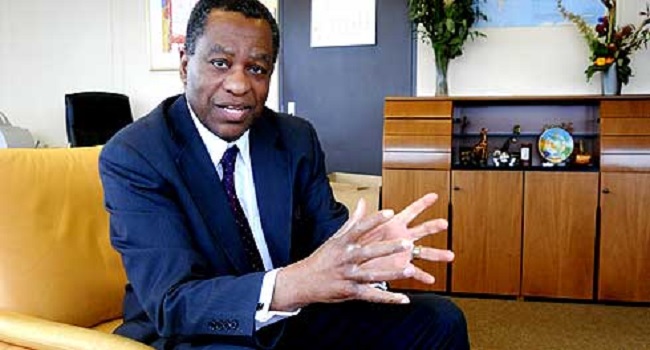“The downsizing of Nigerian Missions is an inevitable pill that needs to be swallowed under the current economic realities of the country and the dire need to eliminate wastefulness and financial leakages. Along with the downsizing comes the need for retraining and skills upgrade of key Foreign Service staff in service delivery and modern leadership. The concern is whether these operations could be undertaken in such efficient manner that an already ailing system is not compromised to a point of total collapse. The current Onyeama Reform seem humane when balanced against the potential redundancy that would have ensued. The redeployment arrangements makes sense”
– Collins NWEKE, Global Affairs Analyst & Former Board Chairman Nigerians in European Diaspora commenting on the planned closure of 10 Nigeria Foreign Missions and staff rationalization
There are strong indications that Federal Government has approved the closure of nine foreign missions and their conversion to non-residency representation or concurrent accreditation. The closure is part of measures to reduce the cost of running Nigeria’s foreign representations in line with the present economic reality.
The affected missions are those whose absence portends no serious bilateral or diplomatic effect. They include the Permanent Mission to the D-8 in Istanbul, Turkey; the Africa-South America Cooperation Forum (ASACOF) in Caracas, Venezuela; embassies in Belgrade, Serbia; Colombo, Sri Lanka; Kiev, Ukraine; Prague, Czech Republic; the High Commission in Singapore as well as Consulates in Buea, Cameroon and Sao Paulo in Brazil.
Also approved for rationalization is the number of officers at foreign missions, estacode for local travels and award of honorary consuls. The government also ordered that posting staff of home ministries to foreign missions should be discontinued, while Foreign Service officers should be trained to carry out multiple tasks including administration, immigration, trade, culture and education related functions.
The rationalization exercise will affect all 119 Nigeria’s foreign missions. Apart from 35 missions, the government directed that all other missions should be run by an ambassador and not more than three home-based staff. The level of local staffing, it said, must be controlled.
A letter from the Chief of Staff to the President, Abba Kyari, addressed to the Minister of Foreign Affairs, Geoffrey Onyeama dated June 8, 2016, said the practice of violating staffing ceilings for each mission must be stopped and corrective measures be put in place. Consequently, it said, there should be a review of the staff strength necessary for each mission.
“Rules and regulations as well as entitlements (estacode) for local travels at post should be reviewed downwards and strict compliance enforced. Similarly, cost and usage of communication and utility services should be reviewed and drastically reduced, and the current entitlement of house maids for senior officers other than the heads of mission and deputy chiefs of mission, where applicable should be discontinued,” it added.
The federal government also discovered that the award of honorary consuls was open to abuse by unscrupulous businessmen. The practice, it said, should be reviewed in accordance with international best practices. “Some of these measures may have the effect of bloating the number of Foreign Service Officers at headquarters. To address this consequence, officers may be deployed to other ministries, departments and agencies to help coordinate their interface with diplomatic missions/international organizations.
“State governments should also be encouraged to receive at least two Foreign Service officers on secondment to assist in providing guidance to their increasing interface with diplomatic missions/international organizations,” the government said. It said the arrangement would engender greater coordination and coherence within the official positions diplomats receive when they visit ministers or governors who often make statements with foreign policy implications without appropriate briefs from the Foreign Affairs ministry.
“Through these Foreign Service liaison officers, not only the Ministry of Foreign Affairs, but our diplomatic missions abroad, will also be sufficiently briefed on the activities and conversations of diplomats from their host countries serving in Nigeria. “While this is only one solution, the MFA should also carefully examined the consequences of overstaffing at headquarters as a result of the planned rationalization and make other recommendations to address the problem. This may include offering redundant officers redeployment to home ministries or early retirement from service without loss of benefit,” the government said.
An official at the Nigerian Consulate Office in Georgia, Atlanta, USA, according to Daily Trust said some key staff in the various missions had been directed by the Ministry of Foreign Affairs to either do a needs assessment or return home and evaluate various staff strength in the missions ahead of the shake-up. The official said the need for some staff at post was questionable, adding that there are administrative officers that have been on posting even when some of their services are not needed there.
He said some missions are not needed because there is hardly any serious bilateral trade or diplomatic impact of some of those countries, some in Africa and others in Asia, which the official noted may not have been reciprocating Nigeria’s diplomatic gestures.
Meanwhile, a number of former diplomats frowned on the federal government decision, saying shutting of some missions sends a signal to the world that the Nigerian economy is in really bad shape. And that it will harm country’s standing in the international community more than the little money that would be saved from such decision.
Curled from African Ripples under the title Nigeria Closes 10 Missions, Rationalizes Staff by Akin Akingbala
